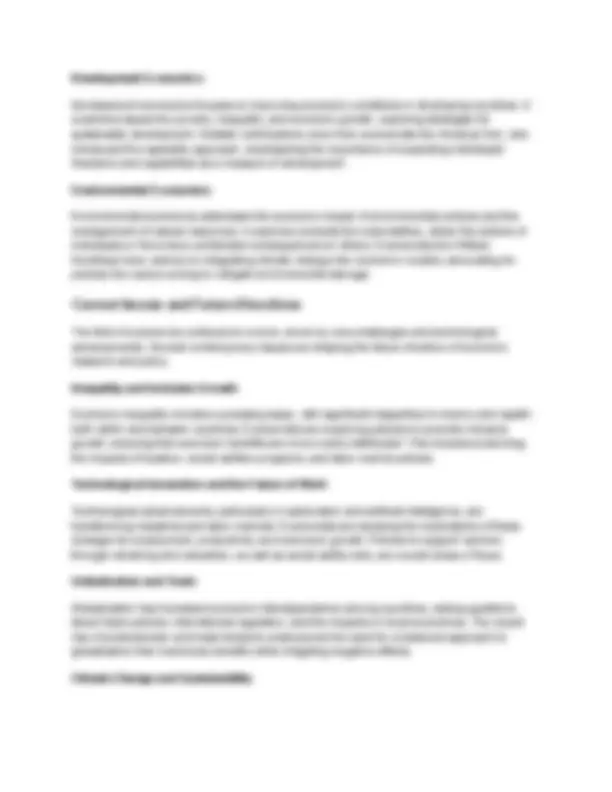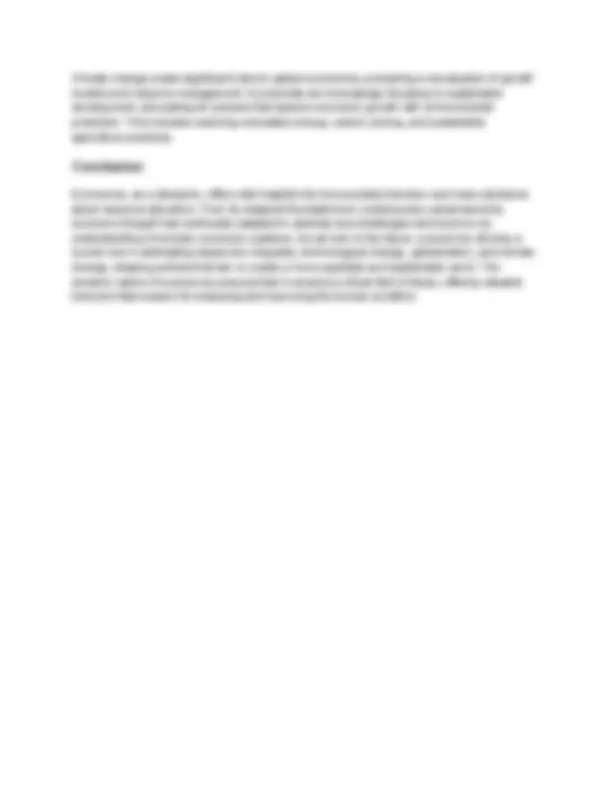




Study with the several resources on Docsity

Earn points by helping other students or get them with a premium plan


Prepare for your exams
Study with the several resources on Docsity

Earn points to download
Earn points by helping other students or get them with a premium plan
Community
Ask the community for help and clear up your study doubts
Discover the best universities in your country according to Docsity users
Free resources
Download our free guides on studying techniques, anxiety management strategies, and thesis advice from Docsity tutors
dsdasadasdsad sdasdsad sc xfaxa asada
Typology: Schemes and Mind Maps
1 / 4

This page cannot be seen from the preview
Don't miss anything!



Economics, the study of how societies use scarce resources to produce valuable commodities and distribute them among different people, is a vital field that underpins every aspect of our lives. From individual decision-making to global economic policies, economics helps us understand and navigate the complex web of interactions that define our world. This essay explores the foundational principles of economics, the evolution of economic thought, and the future directions that this dynamic field is poised to take.
The study of economics is traditionally divided into two main branches: microeconomics and macroeconomics. Microeconomics focuses on individual agents, such as households and firms, and their interactions in specific markets. It delves into concepts like supply and demand, elasticity, consumer behavior, and the structure of markets. By understanding how individuals make choices and how these choices interact to form market outcomes, microeconomics provides insights into how resources are allocated and priced. Macroeconomics , on the other hand, examines the economy as a whole. It looks at aggregate measures like gross domestic product (GDP), unemployment rates, and inflation. Macroeconomics seeks to understand the broader economic forces that shape national and global economies, including fiscal and monetary policies, economic growth, and business cycles.
The field of economics has evolved significantly over time, shaped by historical events, technological advancements, and theoretical breakthroughs. Classical Economics The origins of modern economic thought can be traced back to Adam Smith, whose seminal work "The Wealth of Nations" (1776) laid the groundwork for classical economics. Smith introduced the concept of the "invisible hand," suggesting that individuals' pursuit of their own self-interest inadvertently promotes the good of society as a whole. Classical economists advocated for free markets and minimal government intervention, emphasizing the role of competition in fostering economic efficiency.
Marxian Economics In the 19th century, Karl Marx offered a radical critique of classical economics, focusing on the conflicts between capital and labor. Marxian economics highlighted the exploitation inherent in capitalist systems and predicted their eventual collapse due to internal contradictions. Marx's ideas influenced various political movements and led to the development of socialism and communism as alternatives to capitalism. Neoclassical Economics Building on classical principles, neoclassical economics emerged in the late 19th century, emphasizing the importance of marginal analysis and mathematical modeling. Economists like Alfred Marshall and Léon Walras developed theories of supply and demand, marginal utility, and market equilibrium. Neoclassical economics remains influential today, forming the basis of much contemporary microeconomic theory. Keynesian Economics The Great Depression of the 1930s challenged the classical and neoclassical paradigms, leading to the rise of Keynesian economics. John Maynard Keynes, in his landmark work "The General Theory of Employment, Interest, and Money" (1936), argued that aggregate demand plays a crucial role in determining economic output and employment. Keynes advocated for active government intervention, particularly through fiscal policy, to manage economic fluctuations and mitigate recessions. Monetarism and New Classical Economics In the latter half of the 20th century, Milton Friedman and the monetarists emphasized the role of monetary policy in controlling inflation. Concurrently, the new classical school, led by economists like Robert Lucas, stressed the importance of rational expectations and market-clearing models. These schools of thought underscored the limitations of Keynesian policies and advocated for rules-based approaches to economic management.
Today, economics encompasses a diverse range of theories and methodologies, reflecting the complexity of modern economies. Behavioral Economics Behavioral economics integrates insights from psychology into economic models, challenging the assumption of fully rational behavior. Pioneers like Daniel Kahneman and Amos Tversky demonstrated that individuals often rely on heuristics and are subject to cognitive biases. Behavioral economics has profound implications for public policy, marketing, and finance, as it helps explain why people make seemingly irrational decisions.
Climate change poses significant risks to global economies, prompting a reevaluation of growth models and resource management. Economists are increasingly focusing on sustainable development, advocating for policies that balance economic growth with environmental protection. This includes exploring renewable energy, carbon pricing, and sustainable agriculture practices.
Economics, as a discipline, offers vital insights into how societies function and make decisions about resource allocation. From its classical foundations to contemporary advancements, economic thought has continually adapted to address new challenges and improve our understanding of complex economic systems. As we look to the future, economics will play a crucial role in addressing issues like inequality, technological change, globalization, and climate change, shaping policies that aim to create a more equitable and sustainable world. The dynamic nature of economics ensures that it remains a critical field of study, offering valuable tools and frameworks for analyzing and improving the human condition.